
Fidel Castro was the leader of Cuba for nearly fifty years. In that time, he lived through eleven US presidents and stayed in power for longer than nearly all of his contemporaries.
Although Castro gave up formal power in 2006, he still commanded much attention. Over the last year, 3.1 million pageviews have been recorded on Castro’s Wikipedia article, and over four million more have come in the days since his death.
One of the principal editors behind Castro’s Wikipedia article is Midnightblueowl, who has also written about the early life of Fidel Castro and his role in the Cuban Revolution in addition to other notable political luminaries like Muammar Gaddafi, Vladimir Lenin, Nelson Mandela, and Karl Marx.
“I have long had an interest in political biography, and in particular with the lives and careers of radicals, revolutionaries, and extremists, whatever their ideological standpoint,” they told us. “There is something about people who want radical change, and who succeed in bringing it about, which intrigues me.”
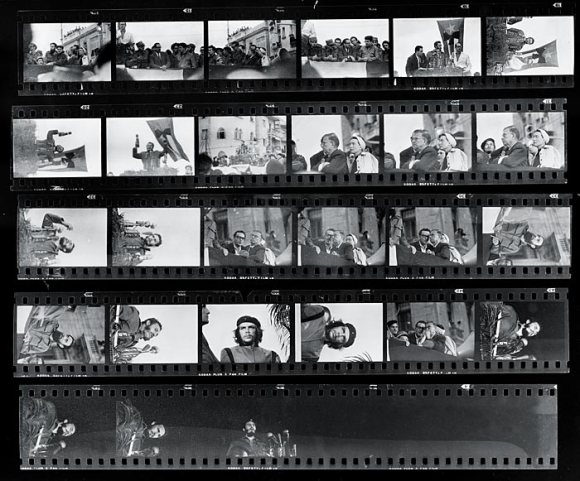
This interest is time-consuming, to say the least. Anyone adding material to Wikipedia needs to support that information with a citation—not unlike what you would find in an academic paper—if its verifiability is not assured. In turn, these citations must refer to reliable sources: third-party sources known for corroborating and confirming the stories they publish. The use of sources without such a reputation is heavily discouraged, and original research of any kind is barred.
This means that rewriting the articles about globally known figures like Castro or Marx figures requires negotiating a series of hurdles:
- First, finding, reading, and—if it’s not in a library—purchasing sourcing material. “It has taken several years of work, and many hundreds of hours of reading and writing, to get these articles up to good and (in some cases) featured article status,” Midnightblueowl said, referring to standard markers of quality on the English Wikipedia. “I wouldn’t call this a chore, as I enjoy reading and learning about the subjects which interest me, but it can be a bit of a challenge, particularly as I have to juggle my Wikipedia editing with multiple ‘real-life’ obligations.”
- Second, Midnightblueowl is a Western European writing about people who came from very different cultural contexts from their own or that of many of Wikipedia’s English-language readership: “It is sometimes necessary to provide greater explanations of various cultural or political idiosyncrasies,” they said. As an example, Midnightblueowl gave Nelson Mandela’s Xhosa family background, which “was not only totally alien to my own experiences as a Western European but would also be radically different to that which most [English language] readers would be familiar with, and thus required a bit of extra explanation.”
- Third, editors can occasionally come into conflict. Among positive and helpful editors, Midnightblueowl noted that there are some editors who are more devoted to pushing personal views and feelings than to the ideal of a neutral article, as Wikipedia policy requires. Dealing with them can be a frustrating process, as Wikipedia runs on a consensus model to come to decisions. “We are losing too many good editors because we are too tolerant of the bad,” they opined.
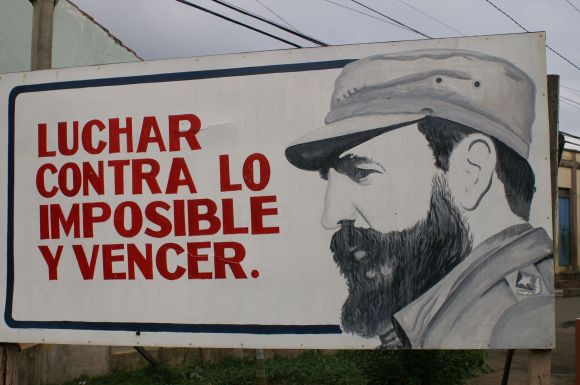
Looking more broadly at the impact of Castro’s life on the world we all live in today, he is certainly viewed through many different lenses, depending on your worldview. The Wikipedia article about Castro notes that he is “controversial”: he has recieved much acclaim for being what supporters would call “a champion of socialism,” but opponents might call him “dictator” who “oversaw human-rights abuses … and the impoverishment of the country’s economy.”
Midnightblueowl suspects that Castro’s significance in world history will lay in the symbolism he cultivated before his death. “At the end of the day,” Midnightblueowl says, “he was the political leader of a largely impoverished Caribbean island, not of a major global superpower.” They continued:
| “ | For millions around the world, [Castro] was perceived as the underdog that took on the United States and won. In that he carries great symbolic resonance, even for those who are not Marxist-Leninists, socialists, or even leftists. This was bolstered by the distinctive imagery that he cultivated, with his beard, cigar, and military uniform making him instantly recognisable across much of the world. In doing so he became far more than just the political ruler of a poor Latin American island; he became an icon and a symbol for many. […] It will be interesting to see what people think of Castro in fifty years’ time. It is possible that he will continue to be presented as an iconic and semi-legendary revolutionary hero, in much the same way that his friend Che Guevara is today; think of how thousands of people display images of Che on t-shirts and posters without having any allegiance to the militant Marxist-Leninist ideology that he espoused. At the same time it is possible that the anti-Castro image of the Cuban leader as an evil totalitarian dictator will have taken hold completely. More likely, I think, is that both concepts of Castro will remain in circulation, with historians taking a more nuanced view between the two extremes. I certainly hope that my work on Castro’s Wikipedia article helps to capture the complexities of that nuance and escapes the promotion of either pro- or anti-Castro caricatures while acknowledging that such caricatures exist. |
” |
That symbolism is visible in the extensive imagery on Castro held by Wikimedia Commons, a freely licensed collection of images used in Wikimedia projects around the globe. Here’s a selection of them.
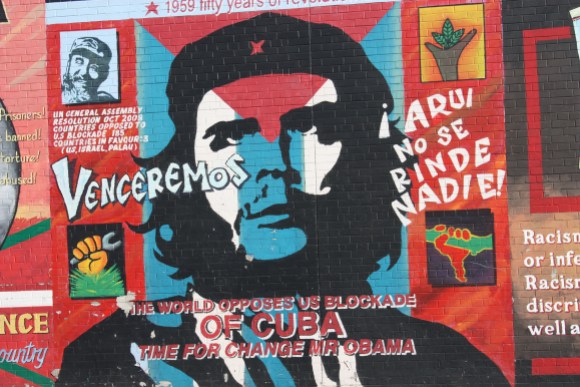
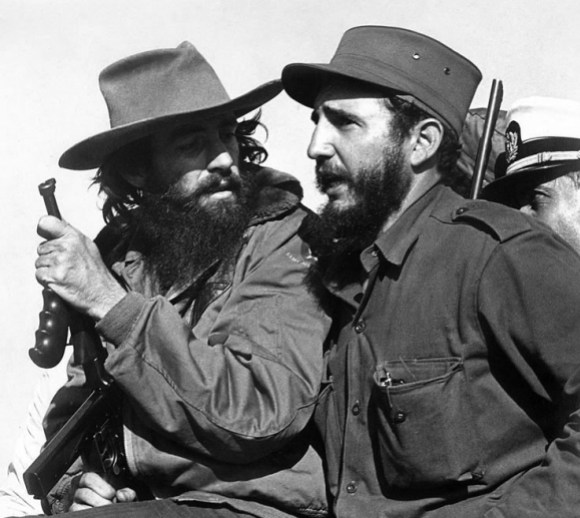
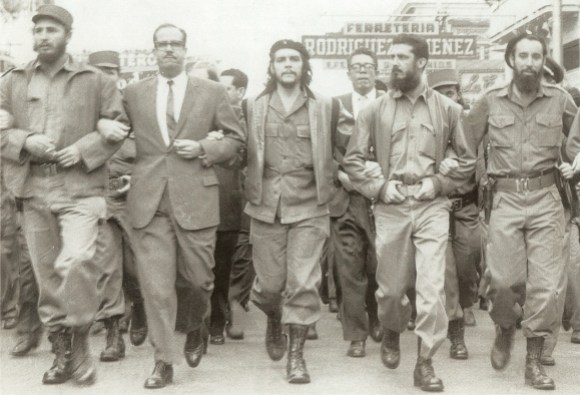
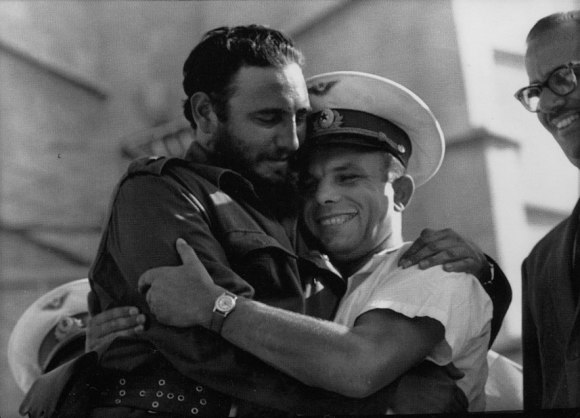
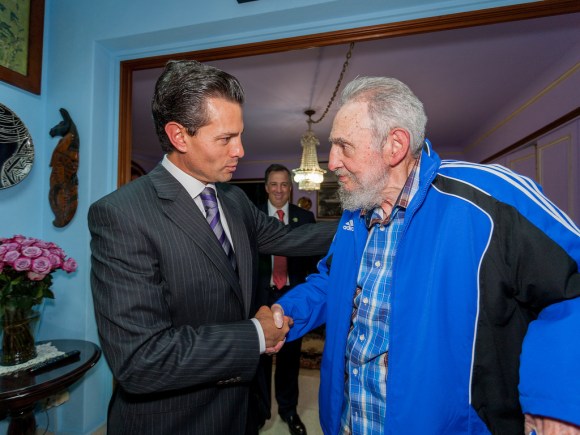
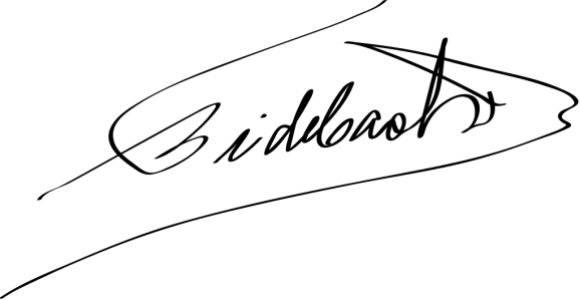
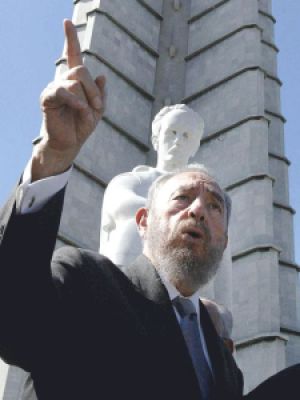
Ed Erhart, Editorial Associate
Wikimedia Foundation

Can you help us translate this article?
In order for this article to reach as many people as possible we would like your help. Can you translate this article to get the message out?
Start translation